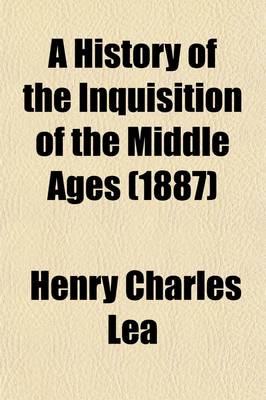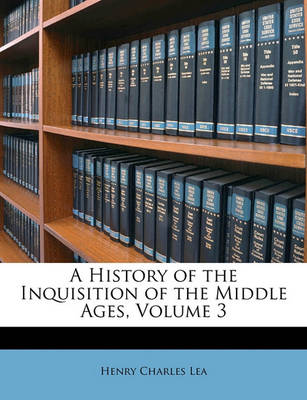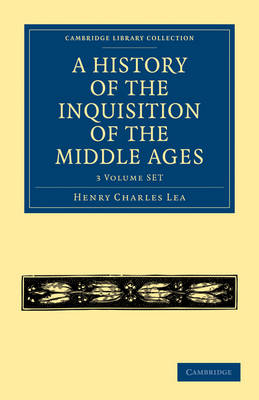Cambridge Library Collection - Medieval History
4 total works
A History of the Inquisition of the Middle Ages: Volume 1
by Henry Charles Lea
Published 1 December 2005
Henry Charles Lea's comprehensive three-volume history of the medieval Inquisition, first published in 1888, was firmly based on primary sources. Lea was convinced that the Inquisition was not arbitrarily devised and implemented but was an inevitable consequence of forces that were dominant in thirteenth-century Christian society. In order to give as full a picture of the Inquisition as possible he examines the jurisprudence of the period. In Volume 1 he presents background information, giving a general account of the Catholic Church in the twelfth century and exploring the events that prompted the Church to set up the Inquisition. He explains the prevalent medieval understanding of the roles of the Church and government in society, and looks at medieval concepts of the relationships between individuals and the Church, the government, one another, and God. Lea shows how these views formed the basis of the Inquisition's structure, organization and processes.
A History of the Inquisition of the Middle Ages (Volume 2)
by Henry Charles Lea
Published 1 December 2005
This comprehensive three-volume history of the medieval Inquisition by the influential American scholar Henry Charles Lea, first published in 1888, was firmly based on primary sources, and adopted a rationalist approach that departed from the pious tone of earlier histories of the middle ages. Lea was convinced that the Inquisition was not arbitrarily devised and implemented but was an inevitable consequence of forces that were dominant in thirteenth-century Christian society. In Volume 2 Lea focuses mainly on the Inquisition in France, Iberia, Italy and Germany. He delves into the relationship between religion and State in the Languedoc region and describes how the University of Paris obstructed the Inquisition's activity. Lea notes that there was almost no Inquisition presence in Portugal, while in Italy sporadic popular opposition to the Inquisition was noticeable. He also explains how the Bohemian reformer John Huss fell victim to the Inquisition in Germany.
A History of the Inquisition of the Middle Ages, Volume 3
by Henry Charles Lea
Published 1 December 2005
This comprehensive three-volume history of the medieval Inquisition by the influential American scholar Henry Charles Lea, first published in 1888, was firmly based on primary sources, and adopted a rationalist approach that departed from the pious tone of earlier histories of the middle ages. Lea was convinced that the Inquisition was not arbitrarily devised and implemented but was an inevitable consequence of forces that were dominant in thirteenth-century Christian society. In Volume 3 Lea focuses on particular aspects of the Inquisition. He considers the impact of the Inquisition on scholarship and intellectual life and on faith and culture, and describes how movements including the Franciscans and the Fraticelli gained prominence. He shows how the concept of political heresy was used by the Church and the State, and argues that belief in sorcery and witchcraft in the fourteenth and fifteenth centuries was stimulated by the Church authorities.
A History of the Inquisition of the Middle Ages 3 Volume Paperback Set
by Henry Charles Lea
Published 10 June 2010
This comprehensive three-volume history of the medieval Inquisition by the influential American scholar Henry Charles Lea, first published in 1888, was firmly based on primary sources, and adopted a rationalist approach that departed from the pious tone of earlier histories of the middle ages. Lea was convinced that the Inquisition was not arbitrarily devised and implemented but was an inevitable consequence of forces that were dominant in thirteenth-century Christian society. In order to give as full a picture of the Inquisition as possible, Lea first examines the jurisprudence of the period and explores the events that prompted the Church to set up such an institution. Volume 2 describes the Inquisition in France, Spain, Italy and Germany, and local opposition to it. The final volume focuses on the impact of the Inquisition on scholarship and intellectual life, faith, politics and society.



